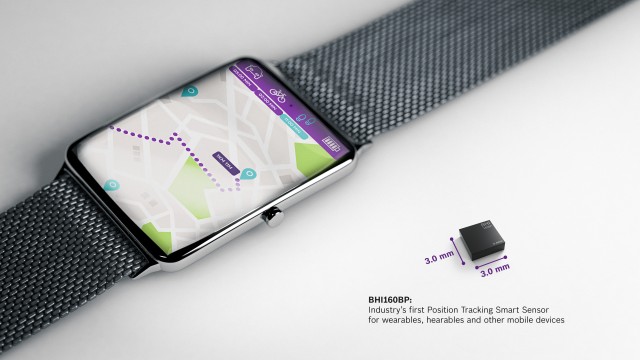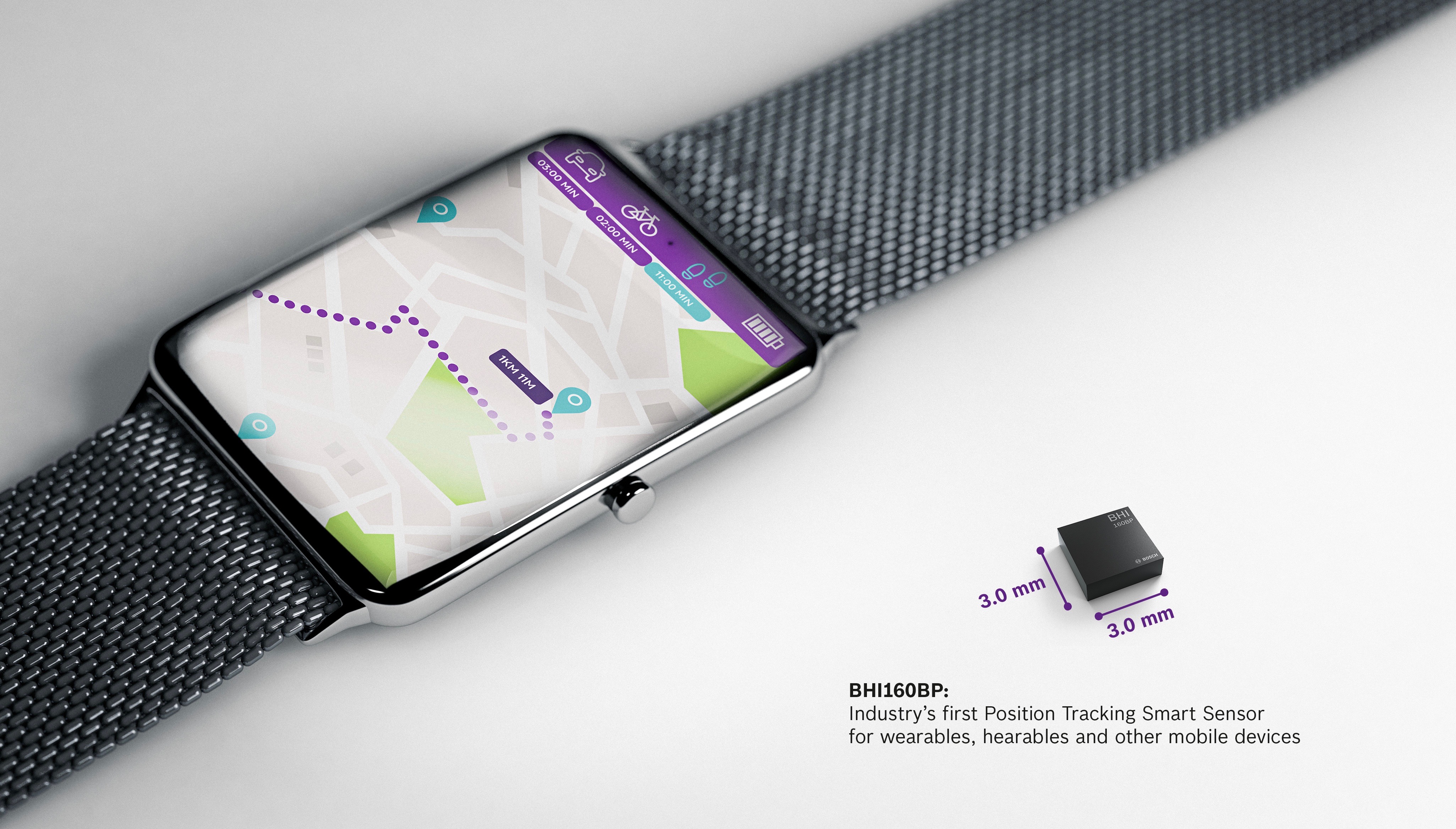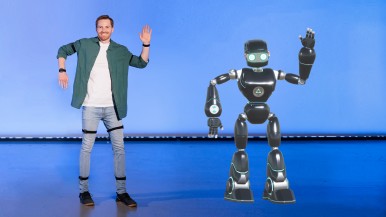Reutlingen / Munich, Germany – At electronica Munich, Bosch Sensortec announces the BHI160BP, the industry’s first Position Tracking Smart Sensor that utilizes integrated inertial sensors to improve GPS location tracking.
YouTube: Position Tracking Smart Sensor BHI160BP video
Bosch Global: Explore and experience what the Position Tracking Smart Sensor BHI160BP has got to do with Harry Potter in Harry Potter and the “Marauder’s Map”.
| Contact: Silvia Mayer phone: +49 7121 35-18453 | Contact person for press inquiries: Christian Hoenicke phone: +49 7121 35-35924 Twitter: @BoschMEMS |
Bosch at electronica 2018 in Munich
- BOOTH: Tuesday to Friday, November 13–16, 2018, booth 522 in hall C3
- FOLLOW the Bosch electronica 2018 highlights on Twitter: #BoschMEMS
- PANELS WITH BOSCH EXPERTS:
- Monday, November 12, 12:30 p.m.: presentation “Sensors enabling future mobility solutions” by Dr. Markus Sonnemann, Vice President Pre-Development MEMS sensors at Robert Bosch GmbH, electronica Automotive Conference at ICM Munich
- Tuesday, November 13, 11:30 a.m.: presentation “MEMS – one product one process?” by Dr. Udo-Martin Gómez, Senior Vice President MEMS sensors, Robert Bosch GmbH, SEMICON Europe, Fab Management Forum at ICM Munich in room 14c
- Tuesday, November 13, 3:00 p.m.: Automobilwoche panel discussion “electronica Talk from the Top” with Jens Fabrowsky, Executive Vice President Automotive Electronics at Robert Bosch GmbH, discovery stage in hall C6
- Tuesday, November 13, 3:30 p.m.: presentation “MEMS Mobility Sensors for motion detection” by Michael Rupp, Senior Expert Product Management Sensors at Robert Bosch GmbH, electronica Automotive Forum in hall B4
- Wednesday, November 14, 3:10 p.m.: presentation “The future of MEMS-based smart sensor nodes in the context of highly functional and ultra-low power IoT applications” by Dr. Ralf Schellin, Head of Product Area MEMS at Bosch Sensortec GmbH, International Congress Center Munich (ICM)
Link
Bosch Sensortec GmbH, a fully owned subsidiary of Robert Bosch GmbH, develops and markets a wide portfolio of microelectromechanical systems (MEMS) sensors and solutions tailored for smartphones, tablets, wearable devices and IoT (Internet of Things) applications. The product portfolio includes 3-axis acceleration, gyroscope and geomagnetic sensors, integrated 6- and 9-axis sensors, environmental sensors, optical microsystems and a comprehensive software portfolio. Since its foundation in 2005, Bosch Sensortec has emerged as the MEMS technology leader in the markets it addresses. Bosch has been both a pioneer and a global market leader in the MEMS sensor segment since 1995 and has, to date, sold more than 9.5 billion MEMS sensors. More than every second smartphone worldwide uses a Bosch Sensortec sensor.
For more information, please visit www.bosch-sensortec.com, twitter.com/boschMEMS
The Bosch Group is a leading global supplier of technology and services. It employs roughly 402,000 associates worldwide (as of December 31, 2017). The company generated sales of 78.1 billion euros in 2017. Its operations are divided into four business sectors: Mobility Solutions, Industrial Technology, Consumer Goods, and Energy and Building Technology. As a leading IoT company, Bosch offers innovative solutions for smart homes, smart cities, connected mobility, and connected manufacturing. It uses its expertise in sensor technology, software, and services, as well as its own IoT cloud, to offer its customers connected, cross-domain solutions from a single source. The Bosch Group’s strategic objective is to deliver innovations for a connected life. Bosch improves quality of life worldwide with products and services that are innovative and spark enthusiasm. In short, Bosch creates technology that is “Invented for life.” The Bosch Group comprises Robert Bosch GmbH and its roughly 440 subsidiary and regional companies in 60 countries. Including sales and service partners, Bosch’s global manufacturing, engineering, and sales network covers nearly every country in the world. The basis for the company’s future growth is its innovative strength. At 125 locations across the globe, Bosch employs some 64,500 associates in research and development.
Additional information is available online at www.bosch.com, www.iot.bosch.com, www.bosch-press.com





